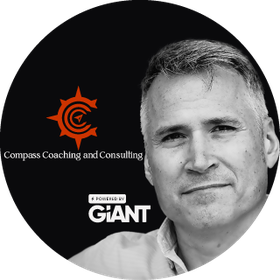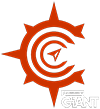About Us
Meet Mike
Mike’s leadership journey is a testament to the power of vision, perseverance, and the ripple effect of empowering others. At just 15, he ignited a movement in Oklahoma with Youth for Youth, a high school club that dared to challenge the status quo. This spark of innovation blazed across state lines, leaving a legacy of self-sustaining chapters that continued to thrive long after Mike’s direct involvement – a true hallmark of his emphasis on cultivating future leaders.
As Mike’s passion for leadership development grew, so did his impact. At 25, he channeled his energy into creating a young adult ministry, where he honed his skills in training leaders to build and multiply small groups. By 30, Mike’s leadership acumen had propelled him to the role of co-senior pastor, showcasing his ability to guide and inspire at higher levels.
Mike’s journey then took an adventurous turn as he joined the prestigious Jackson Hole Mountain Resort, simultaneously laying the foundation for his coaching and consulting business. This blend of corporate experience and entrepreneurial spirit eventually led him to Lee’s Summit, MO, where he managed a major commercial snow and ice company before fully embracing his role as a full-time coach and consultant.

Throughout his career, Mike has been a catalyst for transformation, using his gift for motivational speaking to ignite change in both intimate gatherings and large audiences. His unwavering commitment to fostering personal and organizational growth is driven by a noble vision: to cultivate healthy leaders who can build and guide healthy, high-performing teams. His passion for inspiring change and challenging others to reach their full potential continues to shape the landscape of leadership development, leaving an indelible mark on individuals and organizations alike.
Additionally, Mike has developed an innovative approach to combining leadership development with mountain adventures resulting in unique, impactful experiences that push individuals and teams beyond their perceived limits.
Aside from the love of leadership and mountain sports, Mike is a music enthusiast, both listening to it and playing it (being better at the former than the latter.) He loves music from all eras and genres, though he has a special affinity for Jazz and 90’s alternative and The Beatles. He’s ever curious with a voracious appetite for learning and reading. Mike loves deep conversations and gut-wrenching laughter equally. He’s ever grateful for, and deeply loves, his friends and family.
FAQS
Coaching and consulting are not the same thing though they often happen in conjunction with one another.
Coaching tends to be more subjective and typically focuses on personal issues which are negatively impacting a client’s life and performance. Coaching helps the client:
Sift through the muddle of symptomatic concerns
Gain clarity on the actual root issue(s) to be resolved
Develop an actionable plan.
Coaching typically explores possibilities with the client.
Consulting is more objective and focuses on providing tools to resolve specific organizational challenges. Consulting typically provides possibilities for strategically solving problems and achieving defined outcomes within specified time frames.
In both coaching and consulting, Mike takes a collaborative approach with clients in determining the way forward. His experience provides the discernment to know whether coaching or consulting will be more effective. There is often overlap between the two.
Two undeniable facts.
- We do not know what we do not know.
- Many of us do not act on or apply what we do know.
Most individuals live oblivious to these facts and leaders are no exception. It’s obvious that leaders have gained at least some level of influence based on their natural abilities. But natural ability can only take one so far. The best leaders know this. They also know that what got them where they are now usually won’t get them where they need to go next.
Additionally, even good leaders tend to slide into the malaise of the status quo and settle for things as they are. But the best leaders do not. The best companies in the world—those listed in the Fortune 500 and the Fortune 100—engage coaches and consultants. There is a reason for this. They know that coaches and consultants play a significant role in helping their organizations become the kind that get landed on these prestigious lists. Success leaves clues. The fact that these ultra successful companies engage coaches and consultants to reach the highest levels of success is a significant clue.
And lastly, mounting evidence revealed by sophisticated research and analysis continues to demonstrate that significantly greater progress is made when using a coach or consultant when compared to individuals or organizations that do not.
- those who at the core are deeply motivated and energized to lead their teams and organizations to become as powerful and effective as possible
- those who have had repeat problems undercutting their efforts, causing money—probably more than they are even aware of— and for whatever reason they’ve not been able to resolve the issues internally but now are ready for a change.
- C-Suite Executives, Organizational Leaders, Managers, Leaders of one or more teams, Leaders graduating to being promoted to a C-Suite position and individuals being groomed for or needing/wanting to be groomed for leadership.
- Teams with challenges in one or more of the five following key areas: Communication Relational Dynamics Within the Team Alignment Execution Capacity
- Organizations with similar challenges to those in bucket #2 but on a much larger scale.
Compass Coaching and Consulting does offer some programs at standardized rates. However, most solutions provided to a client are customized to the particular needs, addressing specific problems with specific time frames. Therefore, pricing depends on the customized contract.
Yes. All initial consultations are free. During that time, the following things are achieved:
- Diagnosis of the problem(s)
- Definition of the desired outcomes
- Establishment of Time Margins and Time Frames. This is both the time the client makes available (Daily, Weekly, Monthly) to work towards the solutions as well as timeframe to complete at least the initial phase of the process (6/9/12mo, etc,)
- Understanding of what is next.
- Set date for follow up meeting
What we measure will depend on your goals. Some goals might have key performance indicators we can evaluate at the beginning and end of the process. Some goals will be measured simply in light of execution.
Other goals may be measured through one-on-one meetings with members of the team or through specific assessment tools. The specific metrics you want to change and the degree to which you want them to change will be defined in the beginning. We will document these indicators and evaluate them throughout the process to track progress.
It depends on the work. Workshops and Keynote speaking are always in-person. When working with local individuals or teams, my preference is in person and at the client’s business location when possible. However, I am equipped for video conferencing as well and I facilitate some of my coaching groups virtually.
We will set the terms upfront.
Duration: The minimum time frame for a contract is 6 months, though most contracts begin with a 12-month duration, which is often just the initial phase. Some contracts are 24 months in duration with a 12-month review. All contracts include a 60-day cancellation clause. The reason contracts are lengthy is because they are ultimately about transformation. Transformation takes time.
Payment: Retainers or Deposits are often engaged depending on the scale of the project. Standard monthly charges are set for autopay.





